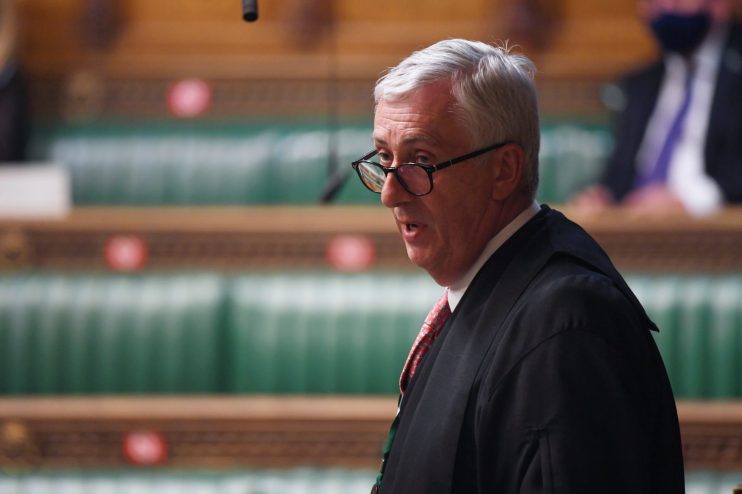Tory rebellion on foreign aid cuts thwarted by speaker Sir Lindsay Hoyle

A Tory rebellion over Boris Johnson’s foreign aid cuts has been thwarted by House of Commons speaker Sir Lindsay Hoyle as he called the amendment tabled “out of order”.
However, Hoyle also said the issue should be “debated and aired” in the Commons and urged the government “to give this House the due respect it deserves…the government should be accountable here”.
The rebellion, made up of at least 35 Tory backbenchers, tried to reverse the government’s decision to cut annual aid spending from 0.7 per cent to 0.5 per cent of Gross National Income.
MPs who had committed to voting against the government, and potentially hand Johnson his first Commons defeat since he won the last election, included Theresa May.
There will now be a three-hour debate on the issue tomorrow, after a proposal was accepted by the deputy speaker.
The failed amendment put forward by rebel leader Andrew Mitchell, former international development secretary, today was to the government’s Advanced Research and Invention Agency (Aria) Bill, which will create an £800m “high risk, high reward” research agency.
The amendment, if passed, would have forced the government to stick to its former target of spending 0.7 per cent of Gross National Income on aid, with any shortfall to come out of Aria’s budget.
Mitchell told MPs that he was confident the rebellion would have handed Johnson an embarrassing defeat by overturning his 80-seat majority.
Hoyle said this afternoon that he had not selected the amendment to be voted on by MPs, however added that the issue should be debated in parliament.
“Amendments and new clauses which are not within the scope of the bill are out of order,” he said.
“[Parliament rulebook] Erskine May states the scope of the bill represents reasonable limits of its collective purposes as defined by its existing clauses and schedules. In this instance, having taken advice form the house’s senior clerks and officers of the speakers council, I’ve deemed new clause 4 to be outside the scope of the bill.”
He added: “I expect that the government should find a way to have this important matter debated and to allow the House formally to take an effective decision.
“And if not, we will then look to find other ways in which we can move forward.”
Mitchell said the government was “treating the House of Commons with disrespect” by avoiding a vote on the foreign aid cuts.
He argued that Tory MPs in particular should be allowed a vote as Johnson said in his 2019 manifesto that he would not make cuts to the UK’s aid spending targets.
When putting a forward a proposal to debate the issue tomorrow, Mitchell said that his rebellion would have won a vote with a margin of “probably around 20”, while also warning that “the House of Commons maths is not going to go away”.
“They are avoiding a vote on the commitments each of us made, individually and collectively, at the last General Election on a promise made internationally and in the opinion of some of the government’s leading lawyers, the government is acting unlawfully,” he said.
Chancellor Rishi Sunak announced the aid cuts last year and said they were necessary to reduce public expenditure after wracking up the highest Budget deficit since World War II last year.
The policy has widespread popularity among the electorate, with a YouGov poll showing in November that two-thirds of Britons supported the cuts.